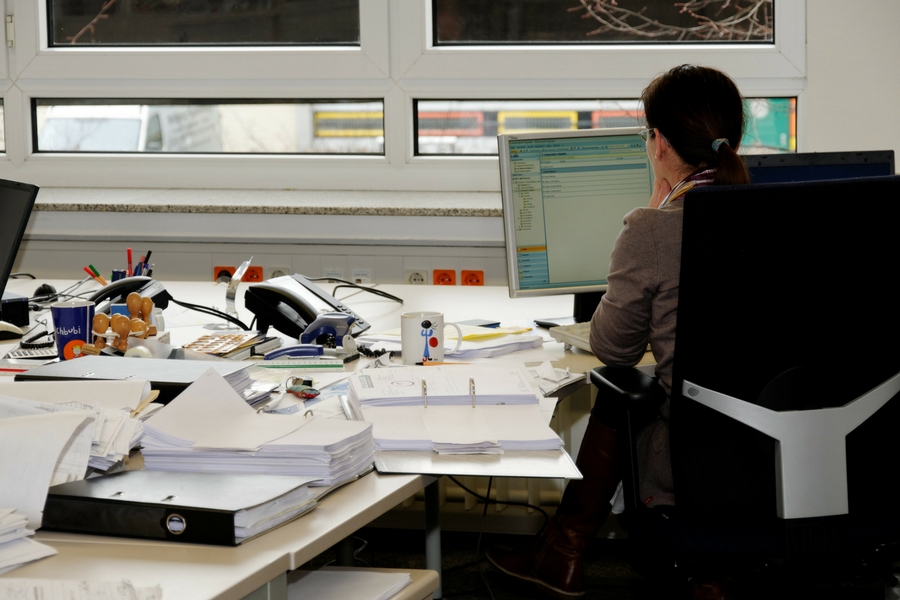Digital Marketing Managers are among the hardest working professionals in the world. A recent study by marketing week suggested Digital Marketers were ‘intensely ambitious’ and work more hours than they’re paid for, despite flat wages.
Additionally, the way digital marketing professionals are working has changed, too. Mobile phones have increased our entertainment options out of work and the fundamentals of our private lives. It’s unimaginable now, that we would make arrangements to see friends and not have a facility to contact them in the event of a delay or change of plan. Younger users are just as likely to watch TV on their phone going to meet them as they are to read a book, a fact that should send shivers down the back of commercial TV operators.
Mobile phones have revolutionised our relationships to work, as well, again, particularly for ‘Generation Y’ which is coming through digital marketing operations now. Even businesses with a physical office, often issue employees with a mobile phone for work. Alternatively, in some situations, employees can choose to receive work communication on their personal device. The components necessary for many ‘Information Worker’ jobs are simply a mobile, a computer, and a good internet connection.
Benefits of Working From Home
Being able to work from home has some clear potential benefits for workers and society in general. Some include:
- Autonomy and flexibility. Working from anywhere can be empowering. Mobility solutionsallow people to decide how to arrange their lives. They also allows people in different time zones to work together effectively meaning talented groups of people can come together to solve problems – a principal which is likely to underpin the future of work and the gig economy.
- Carers continuing to work.Flexible hours can make it easier to be a working parent or carer. Requiring less time in an office can help people to have longer working lives, instead of stopping their career when they need to be at home.
- Career Continuity. Instead of having to leave and re-enter the workforce at a potentially lower paygrade, workers can keep their knowledge and skills current. It also increases their total superannuation contributions, which could help ease the pressure on society when it comes time for them to retire.
- Environmental benefits. Reducing commute time has a real effect on carbon emissions.
- Reduced overheads for businesses. Workers who are in the office less require less space, less furniture, lower power costs and provide their company many further savings.
Pressure to Perform
Being in the office has been traditionally seen as being hard at work. While mobile phones allow people to take their work elsewhere, the pressure to perform and provide proof of performance has substantially increased. Some businesses require people working from home to fill in daily reports on their activities, for example – while someone who is physically in the office but not actually productive isn’t required to provide these proofs.
Being out of the office environment also means that people lose the sense of an office routine – neglecting to take breaks, not keeping regular working hours, and feeling constant pressure to respond instantly to work email and calls, regardless of the hour.
Not only do work hours tend to bleed into personal hours, but designated personal time can be invaded by work. Checking emails first thing in the morning and last thing at night, taking work-related contact on weekends and holidays, and using personal time to do work-related research can become an issue for workers without good boundaries.
Why all this Mobility is a Problem
Businesses have productivity as their main aim, but increased work hours do not directly translate to increased productivity. In fact, studies show that workers who check their email more frequently have much higher stress levels. A lack of balance can result in unhealthy, unhappy employees who are less productive at work.
Some employers do put basic guidelines in place to help with balance, such as advising their workers not to send emails late at night, but generally workers are left to figure out how to manage their working day. Increased productivity and contact can become its own problem – when businesses see that employees are “always on”, they expect that immediate contact as standard and increased their expectations, creating more pressure.
How to Stay Balanced
Keeping expectations clear is one of the most important things you can do to keep a balanced work life. Boundaries are important, and in most cases the worker is going to have to be the one to enforce those boundaries. It’s a good idea to have open discussions about what is required, what the work day will look like and how both sides can be satisfied that expectations are being met.
Routine is another way to keep a good work/life balance. Even if 9-5 office hours aren’t part of your job, consider how you can include breaks and times without your phone into you day. While our society values being busy to the detriment of your health and personal life, studies show that won’t make you a better or more productive worker. Focus on keeping all areas of your life in check, and give that mobile phone a rest. You’ll be a better person – and worker – for making the effort.
Author Bio:
Neil Aitken
Having worked in 3 countries for 4 telcos on both voice and data products, Neil is in a position to give you the inside track. Get beyond the marketing messages to the best plan for you.



